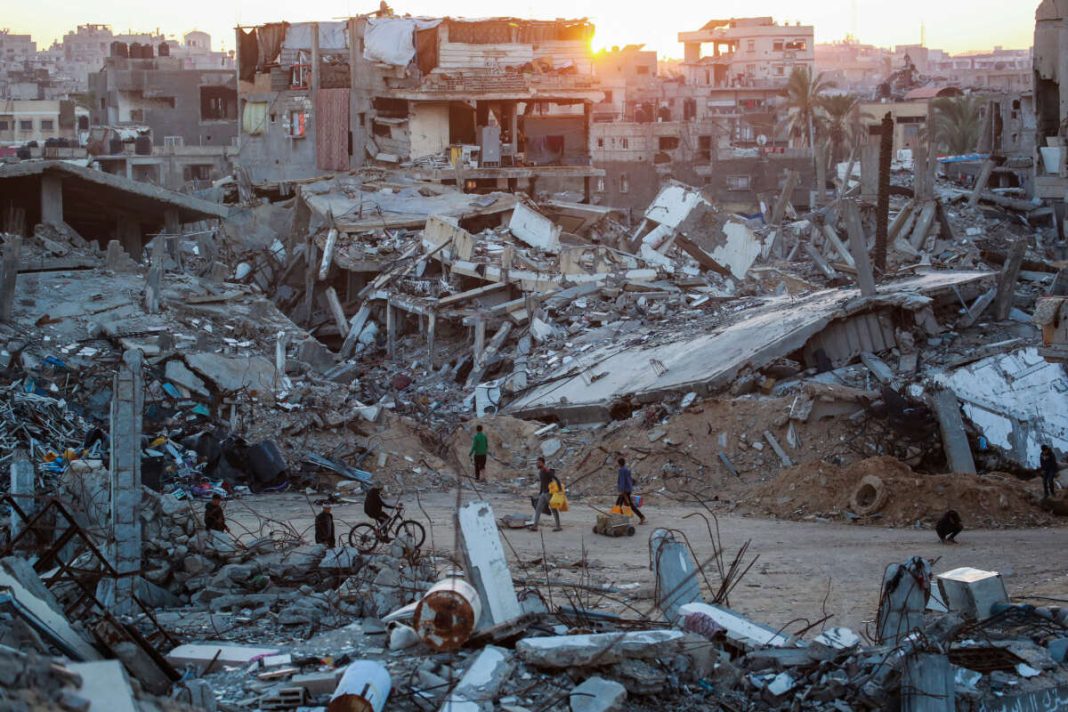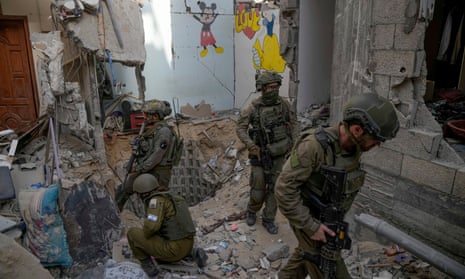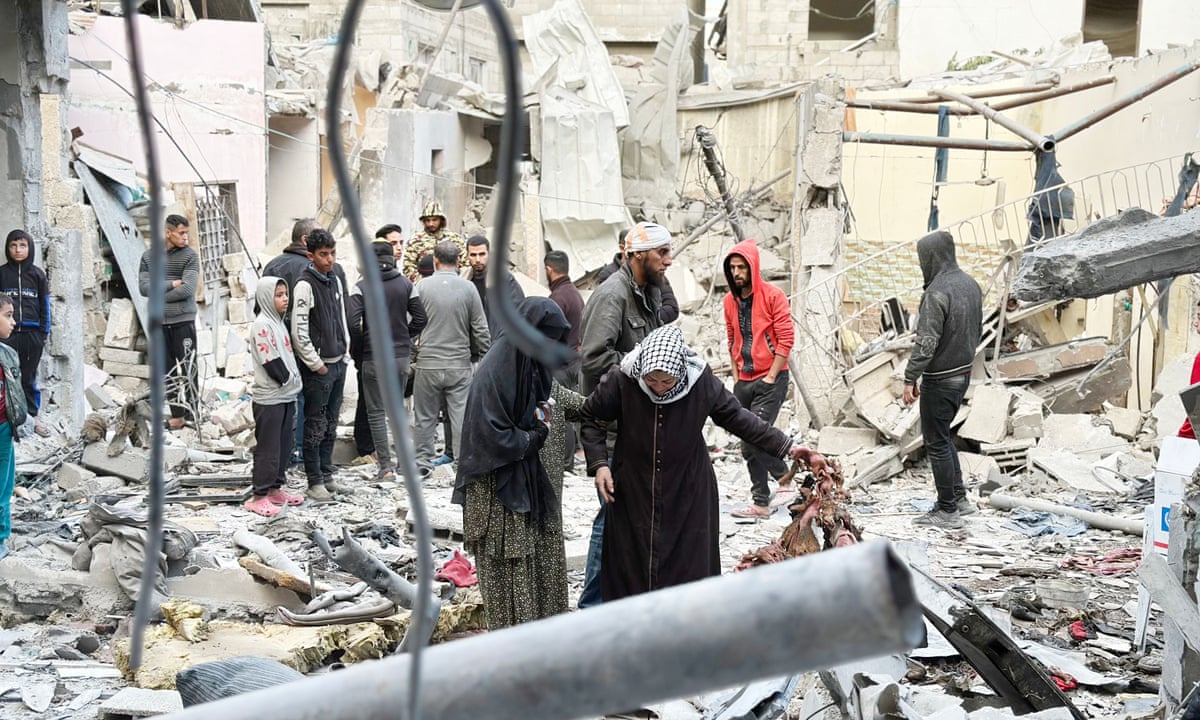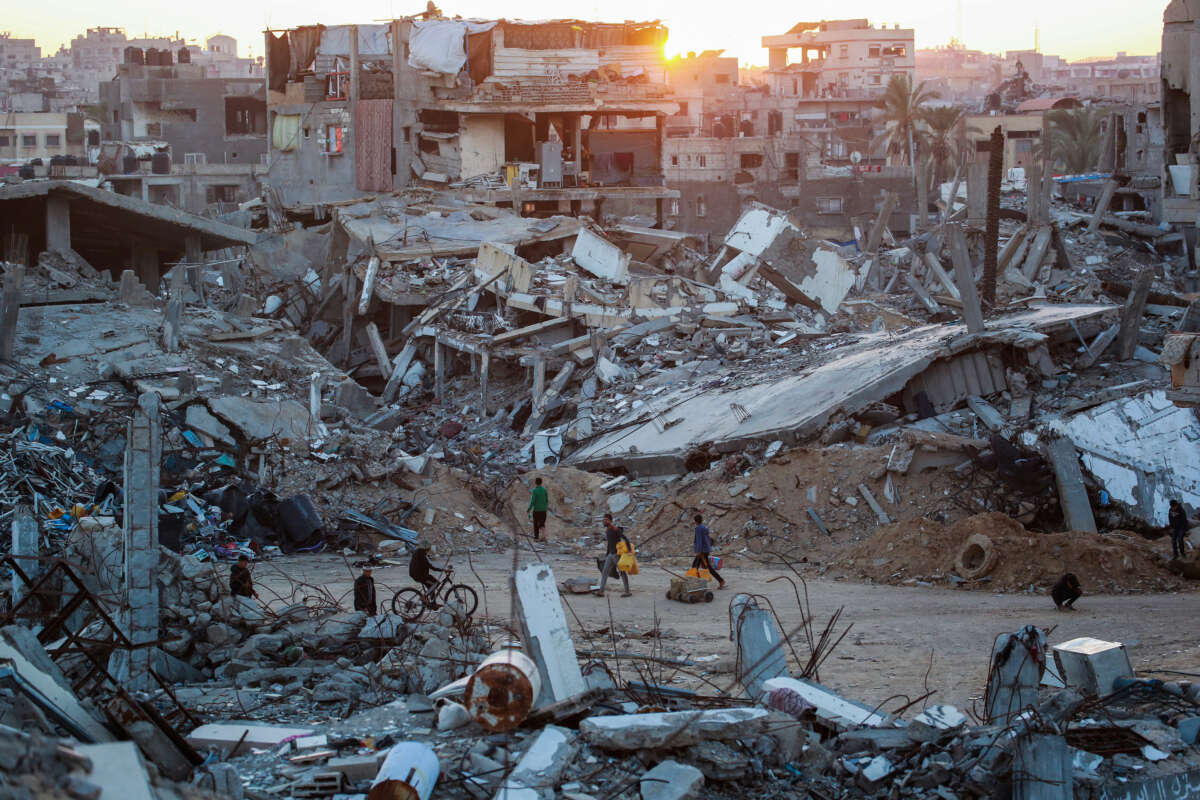A report from Amnesty International alleges that Israel’s war against Hamas in the Gaza Strip constitutes the crime of genocide under international law, the first such determination by a major human rights organisation in the 14-month-old conflict.
The 32-page report examining events in Gaza between October 2023 to July 2024, published on Thursday, found that Israel had “brazenly, continuously and with total impunity … unleashed hell” on the strip’s 2.3 million population, noting that the “atrocity crimes” against Israelis by Hamas on 7 October 2023, which triggered the war, “do not justify genocide”.
Israel has “committed prohibited acts under the Genocide Convention, namely killing, causing serious bodily or mental harm, and deliberately inflicting on Palestinians in Gaza conditions of life calculated to bring about their physical destruction” with the “specific intent to destroy Palestinians” in the territory, the report said.
It marks the first time Amnesty has alleged the crime of genocide during an ongoing conflict, and builds on a March report by the UN special rapporteur for Palestine that concluded “there are reasonable grounds to believe” Israel was committing genocide against Palestinians.
“Our damning findings must serve as a wake-up call: this is genocide and it must stop now,” Agnès Callamard, the group’s secretary general, said in a news conference on Wednesday.
Amnesty cited the deliberate obstruction of aid and power supplies together with “massive damage, destruction and displacement”, leading to the collapse of water, sanitation, food and healthcare systems, in what it called a “pattern of conduct” within the context of the occupation and blockade of Gaza.
“We did not necessarily start out thinking we would come to this conclusion. We knew there was a risk of genocide, as the international court of justice said,” Budour Hassan, Amnesty’s Israel and occupied Palestinian territories researcher, told the Guardian. “When you join the dots together, the totality of the evidence, it is not just violations of international law. This is something deeper.”
The main allegations in the report are:
- The unprecedented scale and magnitude of the military offensive, which has caused death and destruction at a speed and level unmatched in any other 21st-century conflict;
- Intent to destroy, after considering and discounting arguments such as Israeli recklessness and callous disregard for civilian life in the pursuit of Hamas;
- Killing and causing serious bodily or mental harm in repeated direct attacks on civilians and civilian infrastructure, or deliberately indiscriminate attacks; and
- Inflicting conditions of life calculated to bring about physical destruction, such as destroying medical infrastructure, the obstruction of aid, and repeated use of arbitrary and sweeping “evacuation orders” for 90% of the population to unsuitable areas.
As an occupying power, Israel is legally obliged to provide for the needs of the occupied population, Kristine Beckerle, an adviser to Amnesty’s Middle East and North Africa team, said on Wednesday. She described Israel’s May offensive on Rafah, until then the last place of relative safety in the strip, as a major turning point when it came to establishing intent.
“[Israel] had made Rafah the main aid point, and it knew civilians would go there. The ICJ ordered them to stop and they went ahead anyway,” she said. “Rafah was key.”
At least 47 people including four children were killed in air strikes across Gaza on Tuesday, according to health officials in the territory, including at least 21 who were sheltering in tent camp housing displaced people near the city of Khan Younis. The Israeli military said it had targeted Hamas militants.
Amnesty has called on the UN to enforce a ceasefire, impose targeted sanctions on Israeli and top Hamas officials, and for western governments such as the US, the UK and Germany to stop providing security assistance and selling arms to Israel.
The rights group has also urged the international criminal court, which last month issued arrest warrants for the Israeli prime minister, Benjamin Netanyahu, and the former defence minister Yoav Gallant, to add genocide to the list of war crimes it is investigating.
Finally, it called for the unconditional release of civilian hostages and for “Hamas and other Palestinian armed groups responsible for the crimes committed on 7 October to be held to account”.
The report, You Feel Like You Are Subhuman’: Israel’s Genocide Against Palestinians in Gaza, is likely to be met with outrage in Israel and generate accusations of antisemitism. Several legal experts and genocide studies scholars contend that the 7 October attack was also genocidal.
The Holocaust led to the creation of the Jewish state and the Geneva conventions, which codified and outlawed genocide as a punishable crime. Both initiatives were the international community’s “never again” response to the horrors inflicted on European Jews by the Nazis in world war two.
In its conclusion, the report says that Amnesty “recognises that there is resistance and hesitancy among many in finding genocidal intent when it comes to Israel’s conduct in Gaza”, which has “impeded justice and accountability”.
“Amnesty International concedes that identifying genocide in armed conflict is complex and challenging, because of the multiple objectives that may exist simultaneously. Nonetheless, it is critical to recognise genocide, and to insist that war can never excuse it,” it states.
Amnesty said the report was based on fieldwork, interviews with 212 people, including victims, witnesses and healthcare workers in Gaza, analysis of extensive visual and digital evidence, and more than 100 statements from Israeli government and military actors it said amounted to “dehumanising discourse”. It also used video and photo evidence of soldiers committing or celebrating war crimes.
Israel’s acts in Gaza were examined “in their totality, taking into account their recurrence and simultaneous occurrence, and both their immediate impact and their cumulative and mutually reinforcing consequences”, it said. Findings were shared “extensively” on multiple occasions with Israeli authorities, the group added, but were not met with responses.
Thursday’s publication builds on the London-based rights group’s previous bold positions on Israel’s occupation of the Palestinian territories. In 2022, Amnesty joined Human Rights Watch and the respected Israeli NGO B’Tselem in issuing a major report accusing Israel of apartheid, as part of a growing movement to redefine the Israeli-Palestinian conflict as a struggle for equal rights rather than a territorial dispute. Israeli politicians called for the report to be withdrawn, alleging antisemitism.
Cre: The Guardian






